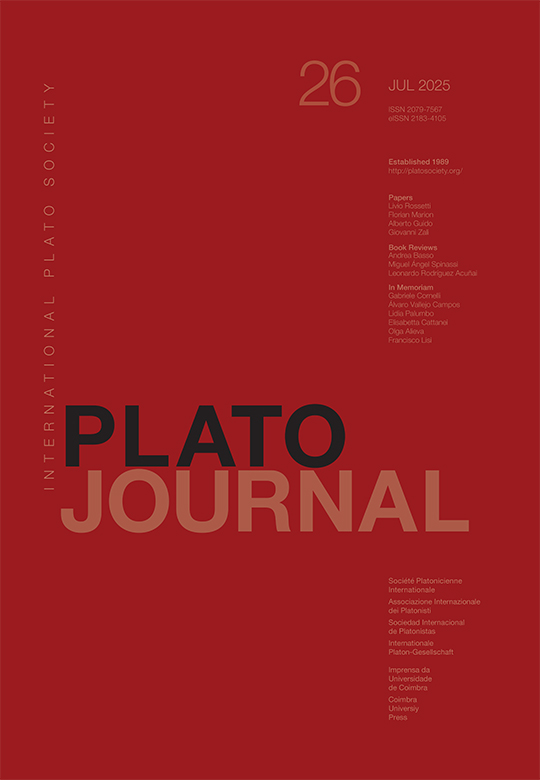Plato on Coming-to-Be: A Midway Path between Eleaticism and Creationism
DOI:
https://doi.org/10.14195/2183-4105_26_2Keywords:
Plato, Parmenides, Metaphysics of Change, Meta-ontology, Coming-to-be, Temporal LogicAbstract
The Parmenides is the locus of Plato’s theoria motus abstracti (that is, abstract kinematics) for it is here that Plato gives a mereological and locational analysis of motion (First Deduction: 138b7-139b3) and discusses the famous puzzle of the instant of change (Second Deduction: 156c1-157b5). But there is another scholarly very neglected text from this dialogue that provides us with great insights about Plato’s theory of change: the Fifth Deduction (160b3-163b6) and its answer to the Eleatic argument against coming-to-be.
I shall devote my paper to Plato’s discussion of the coming-to-be (γένεσις) of beings from what is not; first, by expounding what Plato says in the Fifth Deduction, second, by putting his theory in a bigger philosophical ecosystem (the quarrel between Eleaticism and Creationism). Then, I shall argue for two points: first, coming-to-be as described in the Fifth Deduction is, at first sight, incompatible with Plato’s account of motion given in the First Deduction; second, the logic behind the Fifth Deduction - if consistent - must be a non-classical temporal logic that restricts Leibniz’s laws of identity to some but not all properties.
Downloads
Downloads
Published
How to Cite
Issue
Section
License
Copyright (c) 2025 PLATO JOURNAL

This work is licensed under a Creative Commons Attribution 4.0 International License.
Authors retain copyright and grant the journal right of first publication with the work simultaneously licensed under a Creative Commons Attribution License that allows sharing the work with recognition of authorship and initial publication in this journal.









